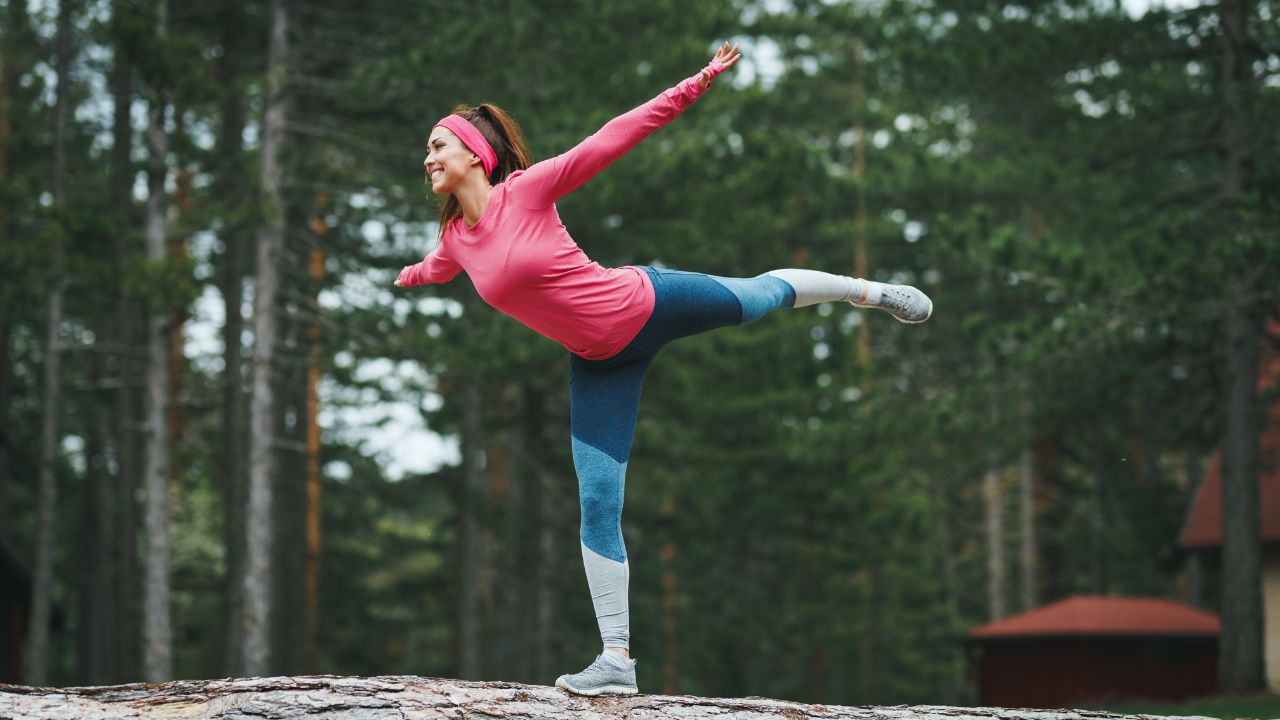
Understanding the Importance of Balance
Good balance is essential for maintaining overall health and well-being. It helps prevent falls, reduces the risk of injuries, and enables us to perform daily activities with ease and confidence. Balance is a complex function that involves the coordination of multiple body systems, including the vestibular system (inner ear), visual system (eyes), and proprioceptive system (muscles and joints). As we age, our balance naturally declines, making it crucial to engage in regular balance training and equilibrium exercises to maintain stability and prevent falls.
Incorporating Balance Training into Your Routine
To improve your balance, it's important to incorporate specific stability workouts and coordination drills into your regular exercise routine. These exercises should challenge your balance and engage your core muscles, which play a vital role in maintaining stability. Some effective balance training exercises include:
1. Single-leg stands: Stand on one foot for 30 seconds, then switch to the other foot. As you progress, try closing your eyes or standing on an unstable surface like a cushion or balance pad.
2. Heel-to-toe walk: Walk in a straight line, placing the heel of one foot directly in front of the toes of the other foot. Focus on maintaining a straight posture and engaging your core muscles.
3. Tai Chi: This ancient Chinese practice combines slow, gentle movements with deep breathing and meditation. Tai Chi has been shown to improve balance, flexibility, and overall well-being.
4. Yoga: Many yoga poses, such as Tree Pose and Warrior III, challenge your balance and strengthen your core muscles. Practicing yoga regularly can help improve your overall stability and body awareness.
Enhancing Proprioception and Vestibular Function
In addition to balance training exercises, there are specific proprioception techniques and vestibular enhancement exercises that can help improve your balance. Proprioception refers to your body's ability to sense its position and movement in space, while the vestibular system is responsible for maintaining balance and spatial orientation. To enhance these functions, try the following exercises:
1. Balance board training: Using a balance board or wobble board challenges your proprioception and engages your core muscles. Start with short sessions and gradually increase the duration and difficulty as you improve.
2. Vestibular exercises: These exercises are designed to stimulate the inner ear and improve its function. Examples include the Epley maneuver, which involves a series of head and body movements to redistribute crystals in the inner ear, and the Brandt-Daroff exercise, which involves lying down and sitting up in a specific sequence to reduce dizziness and improve balance.
Maintaining a Healthy Lifestyle for Better Balance
In addition to specific balance training and exercises, maintaining a healthy lifestyle is crucial for improving and preserving good balance. This includes:
1. Regular exercise: Engaging in a variety of physical activities, such as walking, swimming, and strength training, can help improve overall fitness and reduce the risk of falls.
2. Healthy diet: Eating a balanced diet rich in vitamins and minerals, particularly vitamin D and calcium, can help maintain strong bones and muscles, which are essential for good balance.
3. Staying hydrated: Drinking enough water throughout the day helps maintain proper blood pressure and reduces the risk of dizziness and falls.
4. Managing chronic conditions: Certain chronic conditions, such as diabetes and arthritis, can affect balance and increase the risk of falls. Working with your healthcare provider to manage these conditions effectively can help improve your overall balance and well-being.
Conclusion
Improving your balance is a crucial aspect of maintaining overall health and well-being, particularly as you age. By incorporating specific balance training, equilibrium exercises, stability workouts, coordination drills, proprioception techniques, and vestibular enhancement exercises into your routine, you can significantly improve your balance and reduce the risk of falls. Additionally, maintaining a healthy lifestyle through regular exercise, a balanced diet, staying hydrated, and managing chronic conditions can further support your balance and overall well-being. Remember, it's never too late to start working on your balance, and even small improvements can make a big difference in your daily life.
 Mobility trainingHome Fitness RecoverySports Injury PreventionPersonal Physical TherapyOrthopedic SolutionsPrivacy PolicyTerms And Conditions
Mobility trainingHome Fitness RecoverySports Injury PreventionPersonal Physical TherapyOrthopedic SolutionsPrivacy PolicyTerms And Conditions
